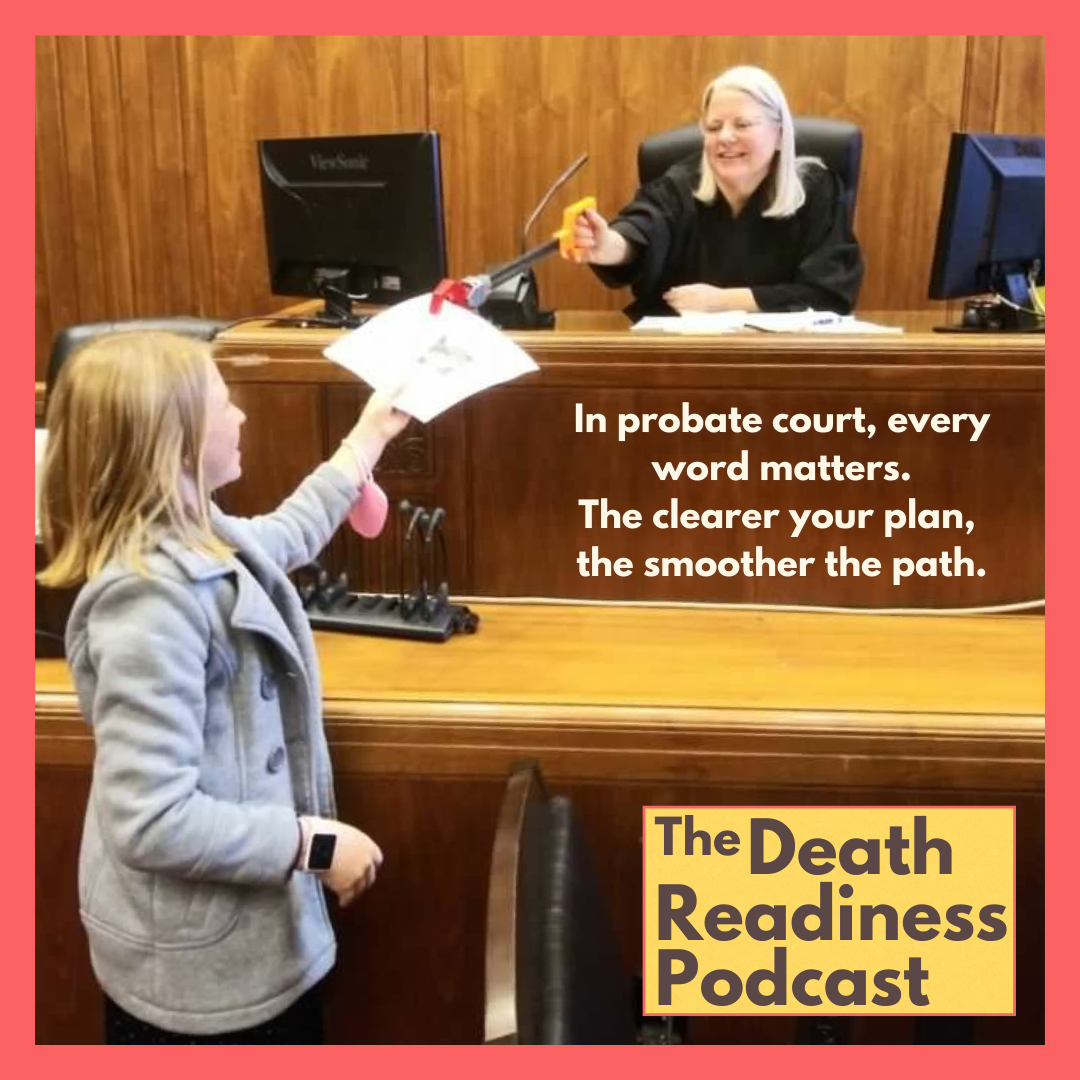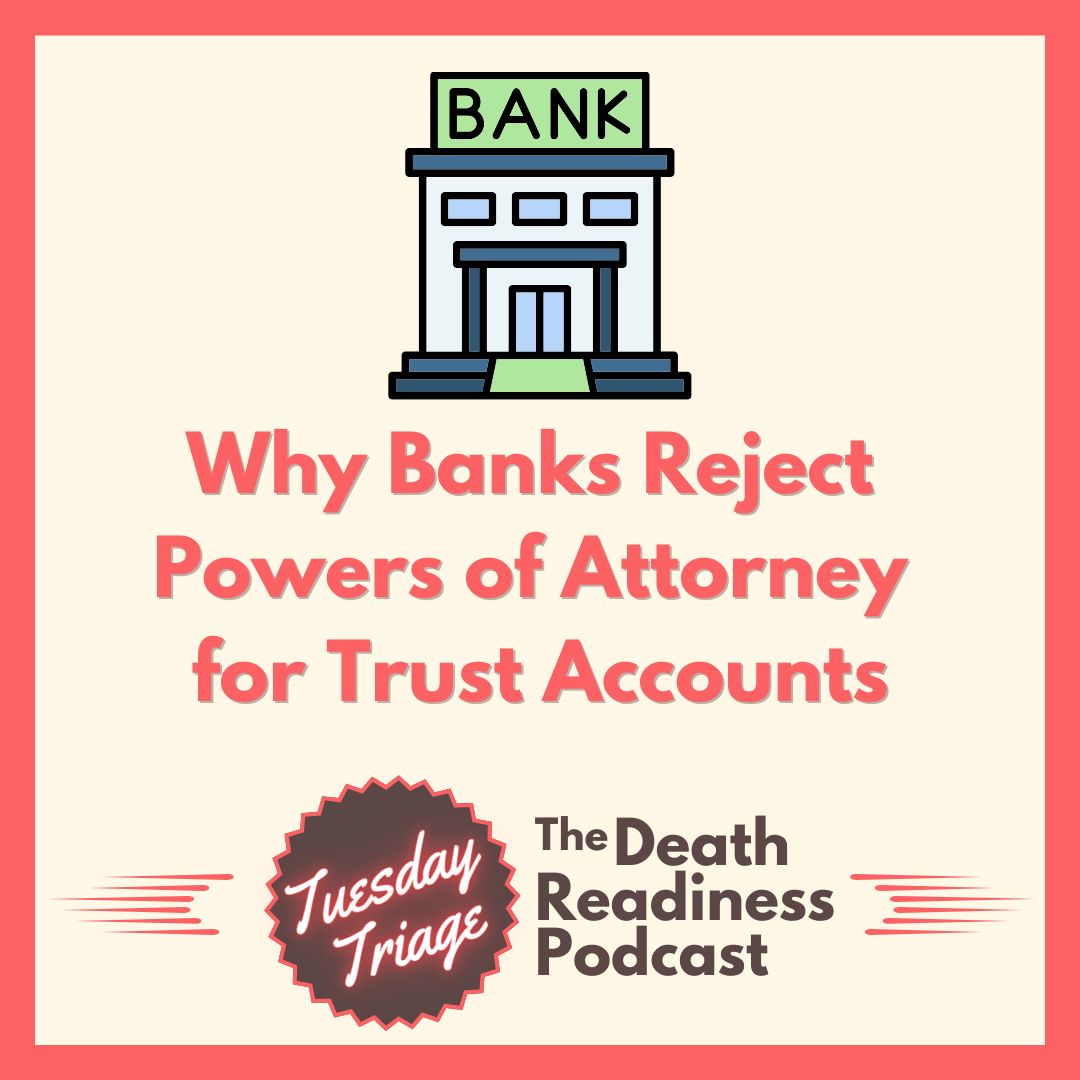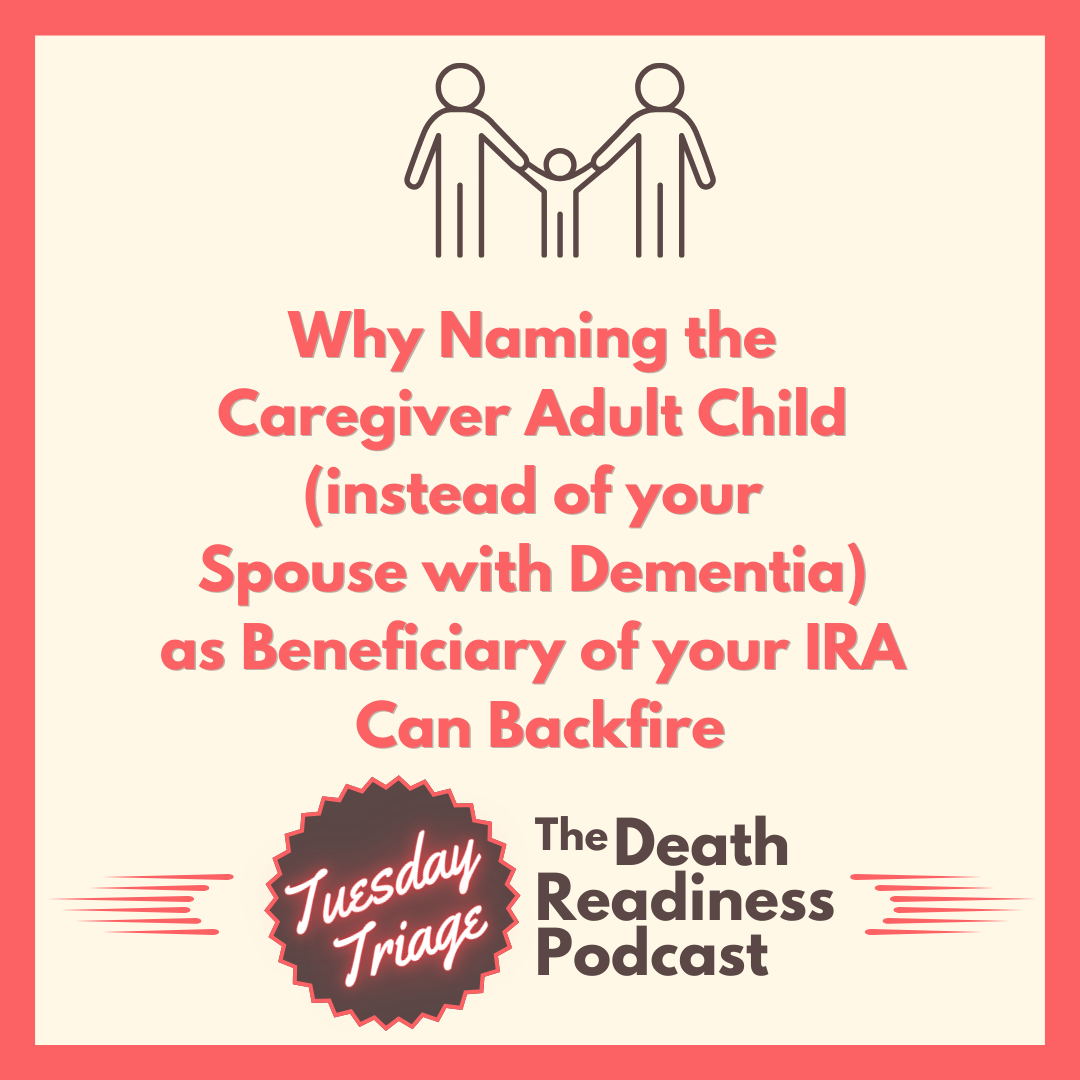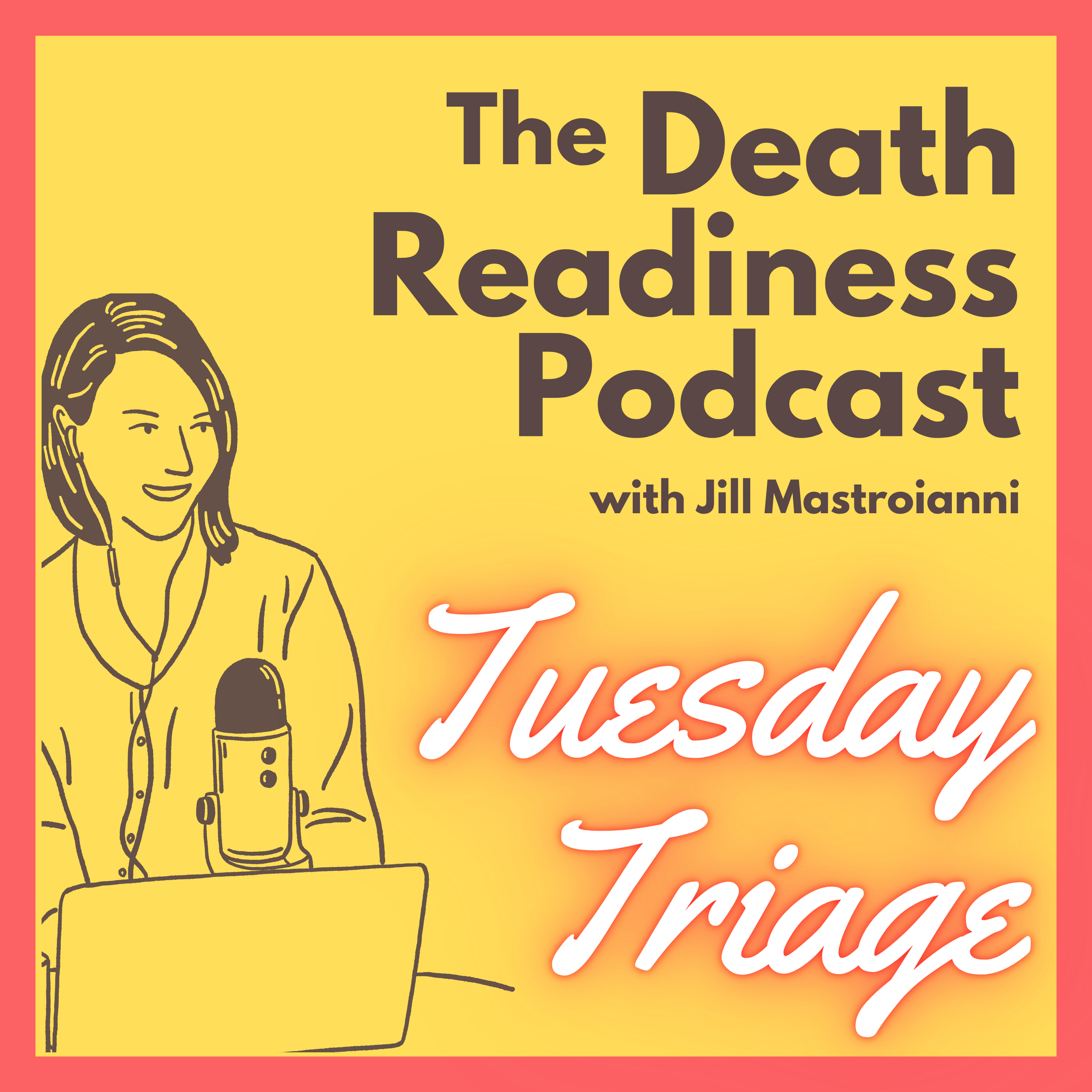Not Your Average Death Blog

How to Write Your Own Will (and Why It’s Not as Simple as You Think)
I spend a lot of time thinking about how people avoid estate planning, not because they don’t care, but because they genuinely don’t know where to start. And nothing captures that better than a question I got recently while checking out at Trader Joe’s in Michigan.
A cashier named Ron noticed my Death Readiness sweatshirt and asked the question almost everyone has wondered at some point: “If I want to leave everything to my brother, can I just write it down and sign it?”
The short legal answer, at least in Michigan, is yes. A handwritten Will (called a holographic Will) is valid if it’s dated, signed, and the material portions are in your handwriting. But when it comes to planning for real-life families, real-life assets, and real-life drama, the better answer is: this gets messy fast.

How to Keep Your Ex Out of Your Estate Plan
When you go through a major life change, you think the moment of “finalizing” something will bring a sense of closure. But usually, it doesn’t. When my husband and I bought our house this fall, I was convinced I’d feel relieved the minute we signed the paperwork. Instead, we immediately plunged into the real work—packing, moving, cleaning out the old place, dealing with inspection repairs, and pretending we’d get around to changing the keypad code “tomorrow.” Weeks later, most of that list is still waiting for us. That weird gap between being “done” on paper and nowhere near done in reality is exactly where one of my listeners, Amy from Nashville, finds herself right now.
Amy is newly divorced after ten years of marriage. The court has signed off. The marital dissolution agreement is official. She is, in theory, “legally done.” But like so many people who reach this point, she quickly realized there’s a long list of loose ends that don’t magically handle themselves. One of the questions at the top of her list was: does she need to update her Will to remove her ex-spouse?

Can You Inherit from Someone You Tried to Kill? The Michigan Case that Surprised Everyone
If you spend enough time in trusts and estates, you eventually learn that the law and common sense don’t always travel together. A recent Michigan case illustrates this perfectly, raising a question most people never imagine needing to answer: Can someone inherit from a person they were once accused of trying to kill? It’s an uncomfortable question, and the answer is not what most people expect.
This case centers around a trust created by a man named Donald shortly before his death in 2017. His wife, Elaine, became the sole beneficiary after he died, and their son, Donnie, was next in line. The trustee at the time, Michael, was not a family member but had been named in the trust documents as a future beneficiary after Donnie’s death. Within months, however, the probate court removed Michael as trustee, a notable action that suggested the court had concerns about how the trust was being managed.

The Hidden Tax Traps in Lifetime Gifts
Avoiding the Hidden Tax Trap in Lifetime Gifts
We love the idea of “getting things done.” We declutter, we consolidate, we “get the house out of Mom’s name.” But sometimes, our efforts to simplify make things more complicated, and more expensive, than we ever intended.

Why Losing Your Original Will Could Cost Your Family Everything
You’d think “filing” your Will would be simple. But as one listener, Jazmine from New Jersey, found out the hard way, it’s not that simple. She thought she had “filed” her Will with her attorney. When her house was burglarized and her important papers were stolen, she wasn’t worried about her Will. She assumed her attorney still had the original. Except, he didn’t. He’d been disbarred and his law firm no longer existed. And her original Will was gone. So, what does it even mean to “file” a Will? And what happens if yours goes missing?

Can You Leave Money to Your Dog?
Your dog might run your home, your heart, and your schedule, but legally, he’s still property.
You can’t leave money to your dog, because under the law, your dog is considered property. And property can’t inherit property.
But you can make sure your pet is cared for if you’re not around to do it. That’s where pet trusts come in.

Do You Really Need a Will? Here’s How to Tell.
Most people assume a Will is the first step in estate planning.
But a Will doesn’t control everything you own; and in some cases, you might decide you don’t even need one.
When I practiced as an estate attorney, one of the questions I got more than any other was,
“Do I need a Will?”
And my answer was always the same:
“I don’t know — not yet.”
Because before you can decide whether you need a Will, you have to understand what a Will actually does.

Why You Don’t Have to Take the Executor Job
When people find out they’ve been named Executor in a family member’s Will, the reaction is almost always the same: panic.
Not because they don’t care, but because they know the person who chose them never really got their affairs in order. The paperwork’s scattered, the passwords are missing, the beneficiary designations are outdated, and there’s no clear roadmap for what comes next.
But here’s the truth: you don’t have to take the job.

When Transfer-on-Death Deeds Promise to Avoid Probate but Create Chaos
We love shortcuts. Grocery store self-checkout. The “express” car wash. Even skipping steps in estate planning, like using a Ladybird deed (also called a transfer-on-death deed) to keep your house out of probate.
On the surface, a Ladybird deed looks amazing. Sign a deed, name who gets the house, and no court gets involved. Cheap, simple, done. Except, like most things in estate planning, what sounds easy can turn into a mess for the people you leave behind.
Today, I sit down with Minnesota probate attorney Jen Gumbel to dig into the good, the bad, and the ugly of transfer-on-death deeds. She’s seen firsthand how they play out in real life, and the results aren’t always pretty.

Do You Need to Update Your Will When You Have More Kids?
Leslie signed her Will five years ago when she had one child. Then she had twins. Now she’s got three kids, and she’s wondering: does her Will still work, or does she need to change it?
It’s a question I get all the time. And the answer is… it depends.
Good estate planning attorneys use solid forms that account for future kids. For example, my own Will doesn’t just name my children; it includes any child “born or adopted after the date of this Will.” That way, if my family grows, the Will automatically grows with it.

How Small Gaps in Your Will Become Big Problems
Twelve years after my mom died, her jewelry still lives in my dad’s house. My sister and I each picked out the pieces we wanted, and I even used one of her rings as my engagement ring.
The rest was tucked away in her dresser drawer until my daughter, April, started exploring them this summer. April never met my mom, but when she wore her grandmother’s earrings to homecoming last weekend, it was like she’d found a way to connect with her.
Jewelry can be a bridge between generations. But in estate planning, it can also be the opposite: the spark that lights a family feud.

When Grief Meets Bureaucracy: Why Families Need Advocates During Estate Administration
Losing a loved one is difficult enough, but trying to navigate the complex maze of bureaucracy involved in managing and administering an estate, while deep in grief, can make things so much harder.

Why Your Business Needs an Estate Plan, Too
What would happen to your business if you didn’t come back after a long weekend? Would your clients get what they’ve paid for? Would invoices get paid? Would anyone even know where to start?
This week’s Tuesday Triage question came from Julie in Virginia, who runs an online business and wanted to know if her business needs an estate plan. The answer is simple: yes.
Because planning isn’t just about what happens if something goes wrong; it’s about agency. It’s about building a business that can survive a sale, a sabbatical, or the unexpected.

How Taylor Swift’s Path to Stardom Began in Probate Court
Taylor Swift is all over the headlines right now with her recent engagement, but did you know her path to stardom began in probate court??

What Really Happens to DIY Wills in Probate Court
When most people say “I just want to avoid probate,” what they really mean is: I want things to be clear and simple. Today I sat down with Probate Court Judge Andra Hedrick from Davidson County, Tennessee, to demystify what probate actually is, why clarity matters, and how well‑intended “simple” Wills (handwritten notes, internet forms, AI drafts) can create complicated outcomes later on.
A Will isn’t a magic key the moment you sign it. It becomes legally effective only IF the court admits it to probate, confirming the basic requirements (like the right signatures, witnesses, and formalities) have been met.

Why Banks Reject Powers of Attorney for Trust Accounts
Have you ever been surprised when a bank accepts a power of attorney for one account but rejects it for another? That’s exactly what happened to Lindsey from Tennessee. She could use her dad’s power of attorney for his checking and savings accounts, but when she tried to use it to access his trust accounts, the bank said no — and didn’t explain why.

Why Naming the Caregiver Adult Child (instead of your Spouse with Dementia) as Beneficiary of your IRA Can Backfire
It’s a situation many families face: a healthy parent wants to make sure their spouse with dementia is cared for if the healthy parent dies first. The instinct might be to name the caregiving adult child as the beneficiary of the IRA — trusting them to use the funds for the parent who needs care. But what seems simple can actually put both the money and the spouse with dementia at risk.

Why You Need (or Don’t Need) a Trust
If you’ve ever been told, “You need a trust,” and didn’t quite know what that meant, you’re not alone.
It’s something people hear from well-meaning friends, financial advisors, or maybe even their parents. But rarely does anyone slow down and explain why you might need one or whether it makes sense for your situation.
That’s what this week’s Tuesday Triage episode is all about.

How to Prevent your Estate Plan from Becoming a Family Battlefield
In Michigan, a recent guardianship case caught my attention—not just because it happened where I live, but because it’s the kind of story I see over and over again, in different forms, across the country.

It’s Going to Be Okay
In this episode of The Death Readiness Podcast, I’m not speaking as an estate attorney or a podcast host. I’m showing up as a daughter, a sister, a mother. A woman in the thick of the sandwich generation—caring for a child, walking alongside a father, and quietly planning for the day I’ll be the one who has to tell Dan again: “It’s going to be okay.”